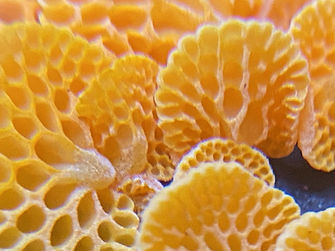Attuning in nature - hands on education for sustainable development
Transdisciplinary Ecology Summer School
Autres Langues

Welcome to Rural Arts In Science & Sustainability Education




What is RAiSE Ecology?
Rural Arts In Science & Sustainability Education

Do you feel that the post-Covid 19 World needs mending?
Does the Millennium need a reboot?
Attune in nature within natural surroundings.
Hands-on practical in-person tuition and part-time flexible virtual learning to suit your needs.
Develop arts and science skills while discovering how you can contribute to restoring nature.
Set up your project.
Digital Badge & Certificate in Applied Ecology.
RAiSE ecology philosophy:
By reconnecting art and science, and applying them to ecological sustainability, Rural Arts In Science and Sustainability Education (RAiSE Ecology) focuses on providing innovative and practical education for genuine sustainable development to meet the three existential challenges of biodiversity conservation, sustainable agriculture, and de-linking from fossil fuels. Because the nature of environment, ecology, and sustainability cut across traditional subject disciplines, and national boundaries, tackling the environmental crises from a transdisciplinary integration of subject perspectives, is a most powerful approach.
RAiSE ecology course:
The international transdisciplinary RAiSE ecology course starts at a rural venue in France and leads toward applications within both urban and rural communities. The RAiSE ecology course is run through innovative, imaginative, and creatively facilitated field workshops, conversations, and projects. The RAiSE ecology course provides a practical and philosophical pathway by which individuals and communities can attune within nature through the development of a deeper systemic understanding of ecological patterns and processes. Attending a RAiSE ecology course will help you to be able to apply ecological principles to build and grow pioneering prototypes of genuinely sustainable solutions that apply to both rural and urban environments. We explore what ecological sustainability and restoration looks, feels, and tastes like, as well as how genuine sustainability can be understood in terms of ecological and economic processes.
RAiSE curriculum:
Since art and science share observation as their root, the course starts with deep observation of biodiversity in rural nature and takes you on an experiential curriculum along twin tracks that explore both scientific and artistic ways to respond to being a human being, at this point in history, on this beautiful planet.
RAiSE topics:
We start in nature with evolution, ecology and biodiversity, leading to ecological pattern and process, sustainable agriculture and permaculture, progressing to sustainable habitat and architecture. Along the way you will learn about applying insights from fungal mycelia, including mycosophy and ecosophy, the development of ecological systems, fabrics and textiles, building materials, biological, carbon neutral, and renewable energy systems, using waste as a resource, rain-water harvest to wood-fired pottery. the residential start of the course will bring you together with international interdisciplinary minds from across the sciences and arts, to create the community that will continue for a further 9 months with an online VLE curriculum together with tutorials helping to guide you with your own applied project of your choice in your workplace, school or local community.
RAiSE projects:
Your final project will enable you to join a growing network of collaborative startups, ecological and mycological entrepreneurs in mutual support to be empowered to transform your workplace, community, home, garden, farm, whether rural or urban. Documentation of your chosen project completes the program, upon which a certificate and digital badge are awarded.















Arts ruraux dans l'enseignement des sciences

En reconnectant l'art et la science et en les appliquant à la durabilité, RAISE se concentre sur la fourniture d'une éducation innovante et pratique pour le développement durable afin de relever les trois défis existentiels de la conservation de la biodiversité, de l'agriculture durable et de la dissociation des combustibles fossiles. Les cours sont dispensés dans un lieu rural en France grâce à l'innovation, l'imagination et la créativité. Les cours fournissent une voie philosophique et pratique par laquelle les individus et les communautés peuvent s'adapter à la nature avec une compréhension systémique plus profonde des modèles et processus écologiques. Suivre un cours RAiSE vous aidera à être en mesure d'utiliser les principes de conception écologique pour construire et développer des prototypes pionniers de solutions durables applicables aux environnements ruraux et urbains. Nous nous demandons à quoi ressemble, ressent et goûte la durabilité ?
De la conception de bâtiments écologiques à l'application des connaissances du monde des mycéliums fongiques, au développement de nouveaux tissus, de nouveaux matériaux organiques, de systèmes d'énergie biologique, neutre en carbone et renouvelables, en utilisant les déchets comme ressource, la récupération de l'eau de pluie à la poterie au feu de bois, le début résidentiel du cours vous réunira avec des esprits interdisciplinaires issus des sciences et des arts, pour créer la communauté qui se poursuivra pendant 9 mois supplémentaires avec un programme en ligne vous aidant à vous guider dans votre propre projet de durabilité appliquée sur votre lieu de travail, l'école ou la communauté locale. Votre projet vous permettra de rejoindre un réseau grandissant de startups collaboratives et d'entrepreneurs écologiques qui s'entraident pour être en mesure de transformer leurs entreprises, leurs communautés, leurs foyers et leurs écosystèmes.















